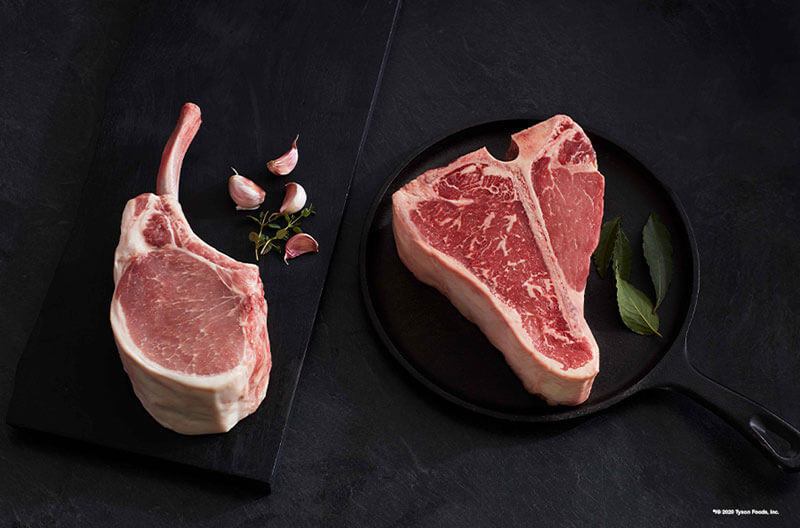sponsored content
In their day to day lives, shoppers are searching for quality and trading in their everyday consumables for more premium versions. From the nightstand to the refrigerator and everywhere in between, consumers are adding more and more premium goods into their lifestyles.
“It’s not just big-ticket items for which consumers are trading up,” said Liana Lubel, SVP of Nielsen Innovation Practice. “Many are looking for everyday items that perform better or fulfill their emotional needs or social aspirations at a price that doesn’t break the bank.” 
According to the Nielsen study, food is one of the top areas where U.S. retailers are seeing sales growth in premium products. The data at the meat case echoes this story.
Ten years ago, meat case offerings looked very different than they do today. As shoppers have become more aware of the flavor and tenderness benefits of higher quality meats, demand for USDA Choice beef has skyrocketed. In turn, purchases of Select-grade meats has fallen, even despite a growing Choice-Select spread.
Shoppers have shown they are willing to pay robust retail prices for higher quality beef. And many are willing to continue to pay even more for USDA Prime beef products. Thanks to its superior flavor, tenderness and juiciness, Prime beef can command a higher price premium.
Nielsen continues to back up what meat retailers are seeing. Globally, shoppers are most willing to pay more for products that “come with high quality standards.” Examples of this in the meat case include those imposed by the USDA when making quality grade determinations.
Brands also can be a differentiator in the meat case. Some brands today have their own strict requirements that fulfill the consumer desire for high quality standards especially when it comes to pork, which does not receive USDA grades.
Values of a brand also remain important to consumers when choosing between similar products in the marketplace. In fact, shoppers are making purchase decisions more and more based on whether their personal values align with brand values.
“As consumers move up the economic ladder, they’re attracted to aspirational brands that signal they’ve achieved a certain amount of success,” Lubel said.
Branded meat products, particularly those making high-quality claims, are attractive to today’s shoppers, and data shows that branded programs have helped drive quality awareness and experience amongst consumers.2
The Chairman’s Reserve brand fits this market niche perfectly. Offering a dual-protein portfolio with two high-quality tiers, the Chairman’s Reserve product lineup can be mixed and matched to fit stores’ individual needs. The Prime beef offering is sourced exclusively from products graded USDA Prime, while Premium beef comes from the USDA upper two-thirds Choice quality grade. For pork, the Chairman’s Reserve brand team uses strict specifications for color, marbling and pH to determine whether individual cuts become part of the Premium or Prime product tiers.
Offering Chairman’s Reserve beef and pork together in your meat case presents a unique opportunity. By having a unified, branded meat case, you’re giving consumers additional confidence when buying beef and pork. Sending a singular message leads to less confusion about the quality and consistency of the product they’re receiving.
Tap into the ever-growing demand for premium products by choosing a brand that can offer everything under one trusted name. Visit ChooseChairmans.com today to learn more or get in touch with your Tyson Fresh Meats representative.

